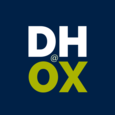Data Curation 2014
Data Curation and Access for the Digital Humanities
Organiser: Kevin Page (Oxford e-Research Centre, University of Oxford) and Megan Finn Senseney (CIRSS, University of Illinois)
Morning Location: Wolfson College, Seminar Room 3
Afternoon Location: Wolfson College, Seminar Room 3
Workshop Speakers: Laird Barrett (Taylor & Francis / Oxford Internet Institute, University of Oxford), Jonathan Bright (Oxford Internet Institute, University of Oxford), J. Stephen Downie (University of Illinois at Urbana-Champaign), Tanya Gray Jones (Bodleian Libraries, University of Oxford), Scott Hale (Oxford Internet Institute, University of Oxford), Neil Jefferies (Bodleian Libraries, University of Oxford), Kevin Page (Oxford e-Research Centre, University of Oxford), Carole L. Palmer (University of Illinois at Urbana-Champaign), Allen H. Renear (University of Illinois at Urbana-Champaign), Sally Rumsey (Bodleian Libraries, University of Oxford), Ralph Schroeder (Oxford Internet Institute, University of Oxford), Megan Senseney (CIRSS, University of Illinois at Urbana-Champaign) and Nicholas Weber(University of Illinois at Urbana-Champaign)
Workshop Abstract
Due to the advances and proliferation of digital humanities research, the curation of digital research data is a growing priority for humanities scholars and their institutions. The approaches and methods of humanist inquiry, as well as the sheer variety of data types and formats, pose particular challenges for successful curation. Data curation is the active and ongoing management of data through its lifecycle of interest and usefulness to scholarship. Optimally, curation begins during project planning with the ultimate goal of adding value to research data and promoting access and reuse across a broader scholarly community.
This workshop will provide a strong introductory grounding in data curation concepts and practices, focusing on the special issues and challenges of validity and meaning for reuse of humanities research data. The program is aimed at humanities researchers — whether traditional faculty or alternative (alt-ac) professionals - but may also be of interest to librarians, archivists, cultural heritage specialists, other information professionals, and advanced graduate students.
Taught by: invited experts from the iSchool at Illinois' Center for Informatics Research in Science and Scholarship and the HathiTrust Research Center as well as staff from University of Oxford's Bodleian Library, Oxford e-Research Centre, and Oxford Internet Institute.
Workshop Timetable
Day One: The first day of the workshop will provide a conceptual framework for considering the role of data in humanities research and the nature of digital objects. Students will gain hands-on experience with developing a plan for managing data associated with funded research projects and accounting for risk and sustainability beyond the level of a given project.
Day Two: The second day will transition from project planning and understanding digital object to contextualizing digital objects and accounting for data provenance. Participants will gain hands-on exposure to contextual data modeling and learn about how strong data models support curation.
Day Three: The third day of the workshop will cover, repository systems for the humanities, sharing digital collections with the public, and normalizing inconsistent metadata using Open Refine. The emphasis here is on tools and approaches for data storage and access as well as understanding the contextual frameworks, limitations, and opportunity inherent in the choices you make and the systems you use.
Day Four: Digital humanities work often involves interdisciplinary collaborations, and skills and knowledge that is translated from technical fields, but also from fields outside the humanities. On this day, several social scientists from the Oxford Internet Institute will lead sessions that discuss how methods developed in the social sciences can help digital humanities practitioners think about data, access and analyse new sources of data, and work with data over time.
Day Five: The final day of the workshop engages participants in open research questions relating to providing access to humanities research data and successfully curating humanities research objects. The final session will close with a reflective discussion about how participants are already curating their own data and what short- and long-term curatorial activities participants can apply to research data moving forward.
| Times | Monday 14 July 2014 | Tuesday 15 July 2014 | Wednesday 16 July 2014 | Thursday 17 July 2014 | Friday 18 July 2014 |
| Morning: 11:00-12:30 Wolfson College, Seminar Room 3 |
"Introduction to Humanities Data Curation: Conceptual Frameworks"Carole L. Palmer and Allen H. Renear |
"Semantically Framing Digital Objects within Context and Provenance"Neil Jefferies |
"Approaches to Putting Digital Collections Online"Neil Jefferies |
"Big Data in the Humanities"Ralph Schroederand Laird Barrett |
"Unlocking the Potential of 3 Billion Books / Workflows and Research Objects"J. Stephen Downie and Kevin Page |
| Afternoon: 14:00-16:00 and 16:30-17:30 Wolfson College, Seminar Room 3 |
"The Curator's Approach to Data Management and Sustainability"Nicholas Weber and Megan Senseney
"Levels of Data Representation and Encoding"Allen H. Renear |
"Contextual data modelling with RDF using CAMELOT"Tanya Gray Jones and Neil Jefferies
"Taking modeling seriously: curation for meaningful reuse"Carole L. Palmer and Allen H. Renear |
"Archiving and Repository Manangement"Sally Rumsey
"Normalizing Metadata Using Open Refine"Megan Senseney |
"Collecting and Using Social Media Data for Research"Jonathan Bright
"Network Analysis of Social Media Data"Scott Hale |
"Storing and manipulating Research Objects"Kevin Page
"Case Study: Creating Worksets in HathiTrust Research Center"J. Stephen Downie and Megan Senseney "Closing Discussion: Minimum Viable Curation" |
Other Notes
Any other notes provided by the workshop organiser will go here if available.



